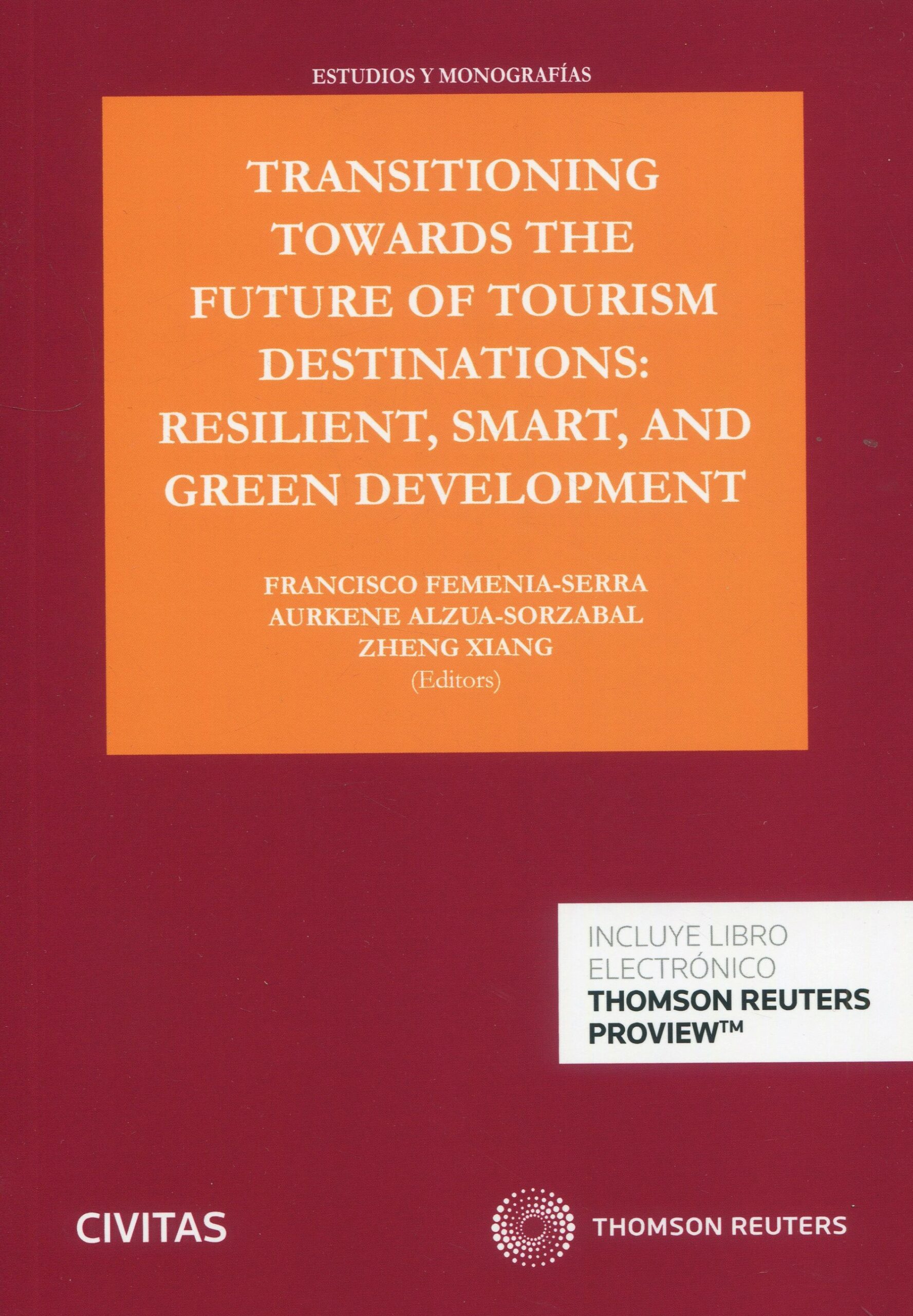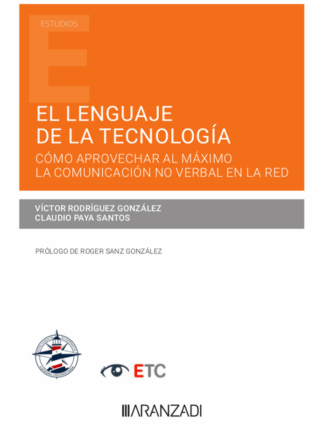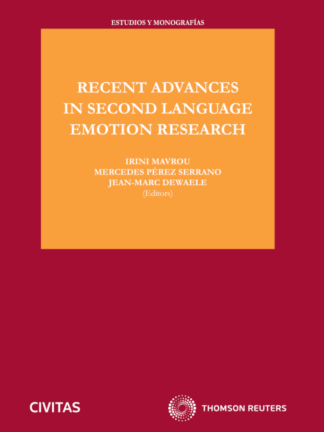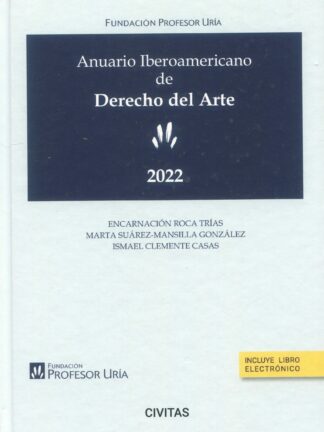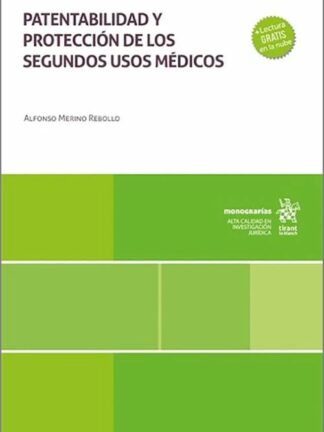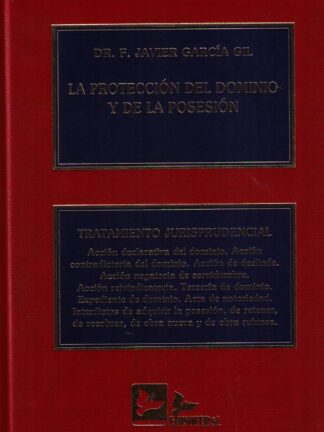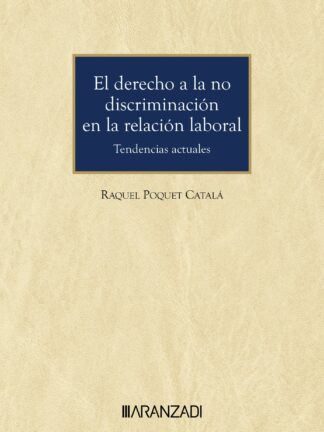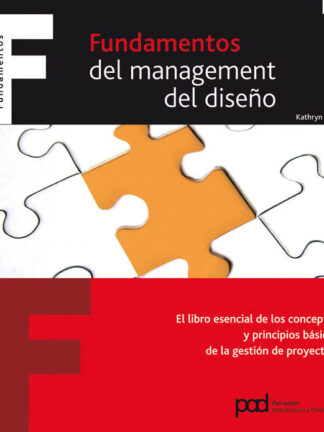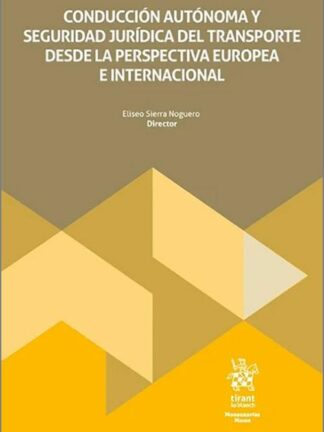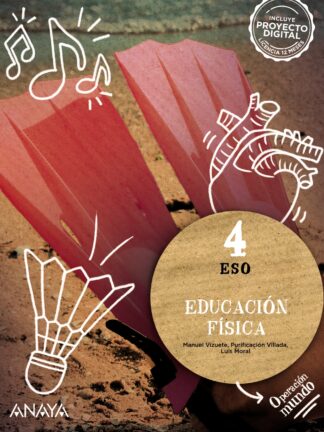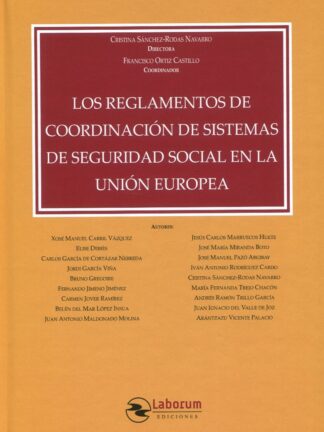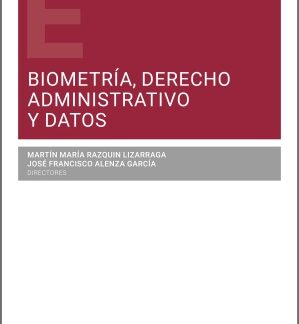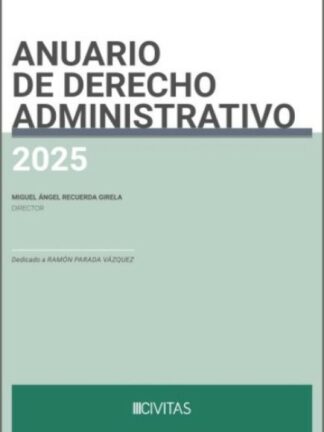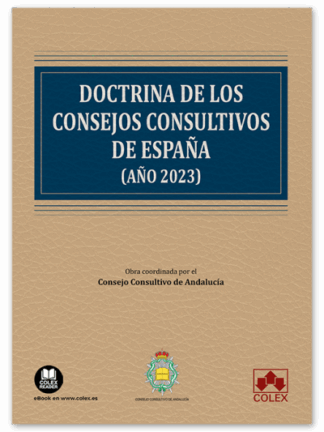Descripción
Transitioning towards the future of tourism destinations: resilient, smart, and green development
This book offers a holistic yet diverse perspectiva on how tourism destinations are facing three interrelated and critical challenges: the uncertainty created by COVID-19 and its subsequent effects; digitalization processes and transition towards smarter destinaúons driven by increasingly ubiquitous technologies; and the quest for sustainabilitv in a sector affected by climate change, to which it is, at the same time, one of the main contributors. This publication examines destinations adaptation strategies to this complex scenario with a collection of eleven chapters authored by reputed scholars from universities in different countries.
This book offers valuable insights in its various forms and contents (i.e., theoretical discussions, case studies, best practices, empirical results, innovative methods, etc.). It provides valuable references for students, researchers, educators, destination managers, planners, marketers and tourism companies. The relationship between sustainability, resilience, digitalization and innovation in destinations requires further discussion and deeper analysis.
This book builds on this need to offer its readership a unique opportunity to learn about how tourism destinations prepare themselves for an uncertain future by developing and deploving strategies to become smarter, greener and more resilient.
SOBRE LOS EDITORES /ABOUT THE EDITORS
RELACIÓN DE AUTORES/ LIST OF CONTRIBUTORS
CONSEJO EDITOR/ EDITORIAL BOARD
COMITÉ CIENTÍFICO/ SCIENTIFIC COMMITTEE
AGRADECIMEINTOS / ACKNOWLEDGMENTS
BOOKS ABSTRACT
CHAPTER 1
INTRODUCTION: TOURISM DESTINATIONS IN CHALLENGING TIMES
CHAPTER 2
REFLECTING ON THE IDEOLOGY OF A MECHANIST ECONOMIC SCIENCE: FROM ONTOLOGICAL INCONSISTENCIES TOWARDS A TRANNSFORMATIVE TOURISM SCIENCE
CHAPTER 3
FROM THEORY TO PRACTICE: PUBLIC POLICY IN SMART DESTITATIONS
CHAPTER 4
SMART TOURISM DESTINATIONS AND COVID-19
CHAPTER 5
BUILDING SUSTAINABILITY IN SAMRT DESTINATIONS: APPLICABILITY OF A MANAGEMENT MODEL FOR THE CASE OF SAPIN
CHAPTER 6
ENHANCING THE UNDESTANDING OF TRAVEL BEHAVIOUR AND RISK PERCEPTION TOA DVANCE THE MANAGEMENT OF DISTINATIONS RESILIENCE
CHAPTER 7
METHODOLOGY FOR STRENGTHENING LOCAL GOVERMENTS: THE CASE OF TEH “REFERENTIAL GUIDE FOR TOURISM MANAGEMENT OF CULTURAL HERITAGE” IN THE PROVINCE OF BUENOS AIRES (ARGENTINA)
CHAPTER 8
SUSTAINABILITY AND CLIMATE ADAPTATION USING SMART TECHNOLOGIES IN THE EVENT INDUSTRY
CHAPTER 9
NATURE-BASES SOLUTIONS: COMPLEMENTING ECOTORUISM’S CONSERVATION, SUSTAINABILITY, AND ECONOMIC OBJECTIVES
CHAPTER 10
SMART TOURISM AND SMART CITIES: DIGITALIZATION AND MAPPING OF CIUTAD VELLA LAND-USE PLANT IN BARCELONA AND MADRID CICLE TRACK INITIATIVE AS TOLOS FOR DECISIÓN-MAKING
CHAPTER 11
DESTINATION SUSTAINABILITY AND PRICING STRATEGY OF THE TOURIST ACCOMMODATION SECTOR: A RELATIONSHIP UNDERSTOOD FROM THE HEDONIC PRINCING PERSPECTIVE
CHAPTER 12
BIG DATA APPLICATIONS TO IMPROVE TOURISM MANAGEMENT IN DESTINATIONS: THE CASE OF THE HOTEL INDUSTRY IN THE CITY OF BUENOS AIRES
References
Appendix

